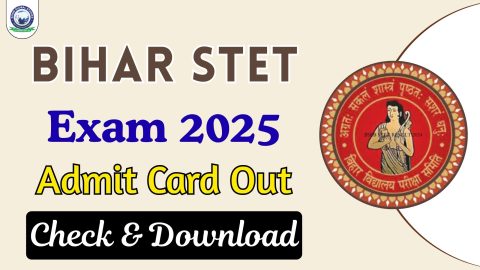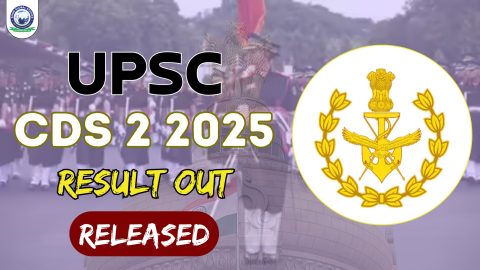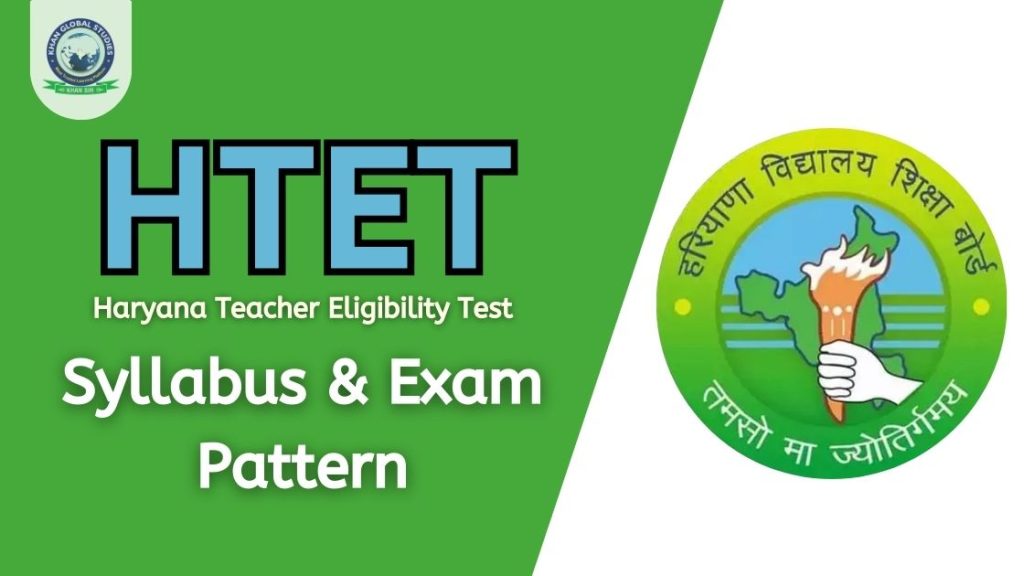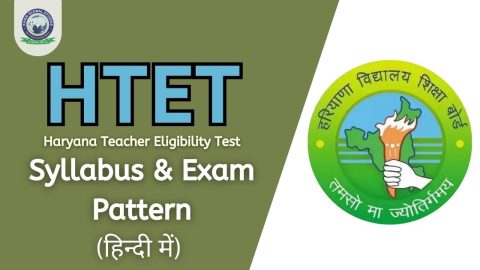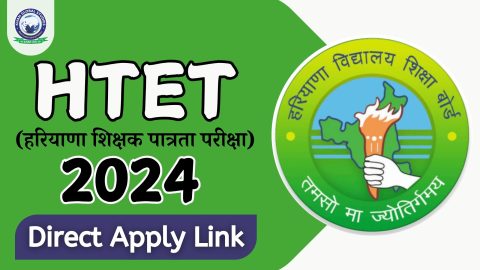Every year, the Haryana Board of School Education conducts the Haryana Teacher Eligibility Test (HTET) to select eligible candidates to teach in secondary, primary and senior secondary classes in government schools of Haryana. Candidates should be well aware of the syllabus to score good marks in the examination. Candidates can keep reading to learn more about the HTET syllabus.
HTET Exam Overview
HTET 2024 notification will be issued on the official website. Candidates must read all instructions carefully before applying for HTET 2024. The Haryana Teacher Eligibility Test 2024 will be conducted in offline mode.
| Conducting Body | Board of School Education, Haryana |
| Exam Name | Haryana Teacher Eligibility Test |
| Mode of Exam | Offline |
| Exam Time Duration | 2 Hours 30 Minutes (150 Minutes) |
| Language | English and Hindi |
| Question Types | Objective (MCQs) |
| Maximum Marks | 150 Marks (for each paper) |
| Negative Marking | No Negative Marking |
| Level of Exams | Level 1: PRTLevel 2: TGTLevel 3: PGT |
| Purpose of Examination | To check the eligibility of candidates for primary and upper-primary level |
| Official Website | https://bseh.org.in/home |
HTET Syllabus
Applicants who get selected in the HTET merit list are selected for various posts under HTET 2021 including Primary Teacher (PRT), Trained Graduate Teacher (TGT), and Post Graduate Teacher (PGT).
This is a syllabus of common subjects for all three levels- HTET Level 1 for Primary Teachers, HTET Level 2 for Trained Graduate Teachers and HTET Level 3 for Post Graduate Teachers.
Child Development and Pedagogy
- The concept of development and its relationship with learning
- Principles of the development of children
- Influence of Heredity & Environment
- Socialization processes: Social world & children (Teacher, Parents, Peers)
- Piaget, Kohlberg, and Vygotsky: constructs and critical perspectives
- Concepts of child-centred and progressive education
- Critical perspective of the construct of Intelligence
- Multi-Dimensional Intelligence Language & Thought
- Gender as a social construct; gender roles, gender bias and educational practice
- Individual differences among learners, understanding differences based on diversity of language, caste, gender, community, religion etc.
- The distinction between Assessment for learning and assessment of learning; School-Based Assessment, Continuous & Comprehensive Evaluation: perspective and practice
- Formulating appropriate questions for assessing the readiness levels of learners; enhancing learning and critical thinking in the classroom, and assessing learner achievement.
- The concept of Inclusive education and understanding children with special needs
- Addressing learners from diverse backgrounds including disadvantaged and deprived
- Addressing the needs of children with learning difficulties, ‘impairment’ etc.
- Addressing the Talented, Creative, Specially abled Learners
- Learning and Pedagogy
- How children think and learn; how and why children ‘fail’ to achieve success in school performance.
- Basic processes of teaching and learning; children’s strategies of learning; learning as a social activity; social context of learning.
- Child as a problem solver and a ‘scientific investigator’
- Alternative conceptions of learning in children, understanding children’s ‘errors’ as significant steps in the learning process.
- Cognition & Emotions
- Motivation and learning
- Factors contributing to learning – personal & environmental
Hindi
संज्ञा, सर्वनाम, विशेषण, क्रिया, वचन, लिंग, उपसर्ग एवं प्रत्यय, वाक्य निर्माण (सरल, संयुक्त एवं मिश्रित वाक्य), पर्यायवाची, विपरीपार्थक, अनेकार्थक, समानार्थी शब्द, मुहावरे एवं लोकोक्तियाँ, अलंकार, सन्धि, तत्सम, तद्भव, देशज एवं विदेशी शब्द, समास
English
Language Comprehension Reading unseen passages –
- Questions based on the passage, including antonyms and synonyms from the passage or prose drama or poem.
- Grammar and verbal ability (Prose passage may be literary, scientific, narrative or discursive)
Pedagogy of Language Development
- Learning and acquisition
- Principles of Language Teaching
- Role of listening and speaking; function of language and how children use it as a tool
- A critical perspective on the role of grammar in learning a language for communicating ideas verbally and in written form
- Challenges of teaching language in a diverse classroom; language difficulties, errors and disorders
- Language Skills
- Evaluating language comprehension and proficiency: speaking, listening, reading and writing
- Teaching-learning materials: Textbook, multimedia materials, a multilingual resource for the classroom
- Remedial Teaching
Mathematics
- Geometry – Circle, Triangle, Rectangle, Square and related theorems
- Shapes and Spatial Understanding
- Solids around us – Cube, Cuboid, Cone, Cylinder, Sphere, Hemisphere etc.
- Number System – LCM, HCF, Factors, Unit digit, Digit Sum etc.
- BODMAS – Simplifications including Addition, Subtraction, Multiplication, and Division
- Nature of Mathematics/Logical thinking; understanding children’s thinking and reasoning patterns and strategies for making meaning and learning
- Place of Mathematics in Curriculum
- Language of Mathematics
- Community Mathematics
- Evaluation through formal and informal methods
- Problems of Teaching
Quantitative Aptitude
- Simplification
- Interest
- Percentage
- Ratio and Proportion
- Average
- Problems on Ages
- Speed Time & Distance
- Profit & Loss
- Number Series
- Number System
- Mensuration
- Data Interpretation
- Time & Work
- Algebra
- Geometry
Reasoning Ability
- Classification
- Analogy
- Coding-Decoding
- Matrix
- Word formation
- Arranging words in Meaningful order or Dictionary order
- Venn diagram
- Directions; Distances
- Blood Relations
- Missing Number
- Puzzles
- Series
- Non-Verbal Reasoning
Haryana General Knowledge
- Culture of Haryana
- Haryana History
- Geography Haryana
- Environment – Haryana
- Economy/Polity of Haryana
- General Science
- Misc. GK- Sports, Books, Dates, Schemes
Environmental Studies
- Relationships
- Work and Play
- Animals
- Plants
- Food
- Shelter
- Water
- Pedagogical Issues
- Concept and scope of EVS
- Significance of EVS integrated EVS
- Environmental Studies & Environmental Education
- Learning Principles
- Scope & relation to Science & Social Science
- Approaches to presenting concepts
- Experimentation/Practical Work
- Discussion/CCE
- Teaching material/Aids Problems
Computer Science
- Computer Fundamental
- DBMS, RDBMS, SQL
- Data Communication and Networking
- Operating System
- Internet and Web Technologies (DNS, IP, HTML, CSS, JAVA Script, WWW, Web Servers etc)
- Data Structure and Algorithm
- Programming Languages(C, C++, OOPS)
Biology
- Animal Kingdom
- Biological Classification
- Plant Kingdom
- Morphology of Flowering Plants
- Anatomy of Flowering Plants
- Animal Tissues
- Cell
- Cell Cycle and Cell Division
- Biomolecules
- Transport in Plants
- Mineral Nutrition and Nitrogen Cycle
- Photosynthesis in Higher Plants
- Respiration in plants
- Plant growth and development
- Human Physiology
- Reproduction in Organisms
- Sexual Reproduction in Flowering Plants
- Human Reproduction
- Reproductive health
- Principles of Inheritance and Variation
- Molecular Biology
- Evolution
- Human Health and Diseases
- Strategies for enhancement in food production
- Microbes in Human Welfare
- Biotechnology and their applications
- Ecology
Commerce
- Business Environment and International Business
- Accounting and Auditing
- Business Economics
- Business Finance
- Business Statistics and Research Methods
- Business Management and Human Resource Management
- Banking and Financial Institutions
- Marketing Management
- Legal Aspects of Business
- Income-tax and Corporate Tax Planning
Economics
- Micro–Economic Analysis
- Macro–Economic Analysis
- Development and Planning
- Public Finance
- International Economics
- Indian Economy
- Statistical Methods
HTET Syllabus PRT – Level 1 (Classes 1-4)
| Subject | Topics |
| Child Development and Pedagogy | Educational Psychology for Teaching and Learning (relevant to the age group between 6-11 years) Interpreting the characteristics and needs of diverse learners Interaction with learners, qualities of good facilitators. |
| Hindi and English | Command over the language, basic skills and grammar, and vocabulary. |
| Quantitative Aptitude, Reasoning, General Awareness | Verbal reasoning, Non-verbal reasoning Coding and decoding Numerical efficiency Basics of the concepts General Knowledge related to Haryana |
| Mathematics and EVS | Pedagogical understanding and basic concepts of the subject Topics revolving around 1-4 in the Haryana government-affiliated schools |
HTET Syllabus PRT – Level 2 (Classes 6-8)
| Subject | Topics |
| Child Development and Pedagogy | Educational Psychology for Teaching and Learning is relevant for the age groups between 11 and 16 years. Interpreting the characteristics and needs of diverse learners Interaction with learners, qualities of good facilitators. |
| Language Hindi and English | Command over the language, basic skills and grammar, and vocabulary. |
| Quantitative Aptitude, Reasoning, General Awareness | Concepts of the subjects for the age groups 11 and 16 Verbal and non-verbal reasoning Coding and decoding Numerical efficiency Basics of the concepts General Knowledge related to Haryana |
| Subject Chosen By the Candidates | Concepts of the particular subject for classes between 6 and 10, brief understanding of the basics etc. |
HTET Syllabus PRT – Level 3 (Classes 9-12)
| Subject | Topics |
| Child Development and Pedagogy | Educational Psychology for Teaching and Learning is relevant for the age groups between 14 and 17 years. Interpreting the characteristics and needs of diverse learners. Interaction with learners, qualities of good facilitators. |
| Hindi and English | Command over the language, basic skills and grammar, and vocabulary. |
| Quantitative Aptitude, Reasoning, General Awareness | Concepts of the subjects for the age groups 14 and 17 Verbal and non-verbal reasoning Coding and decoding, number series, alphanumeric series. Numerical efficiency Basics of the concepts General Knowledge related to Haryana |
| Subjects chosen by the candidates Economics/Physics/Chemistry/ Commerce/Biology/Political Science etc. | Concepts of the particular in between 10 and 12, graduation, brief understanding of the basics etc. |
HTET Exam Pattern
Haryana Board of School Education (HBSE) will conduct the HTET 2023 exam in offline mode for applicants who want to become a teacher in Haryana. Board of Secondary Education Haryana (BSEH) conducts the HTET examination at three levels: Level 1, Level 2 and Level 3.
- Level 1: For Primary Teachers (Class 1 to 5)
- Level 2: For Trained Graduate Teachers (Class 6 to 8)
- Level 3: For Post Graduate Teachers (Classes 9 to 12)
HTET Exam Pattern for PRT
| Subject | No. of Questions | Maximum Marks |
| Child Development and Pedagogy | 30 | 30 |
| Language-Hindi | 15 | 15 |
| Language-English | 15 | 15 |
| Quantitative Aptitude | 10 | 10 |
| Reasoning | 10 | 10 |
| Haryana GK | 10 | 10 |
| Mathematics | 30 | 30 |
| Environmental Studies | 30 | 30 |
| Total | 150 | 150 |
HTET Exam Pattern for TGT
| Subject | No. of Questions | Maximum Marks |
| Child Development and Pedagogy | 30 | 30 |
| Language-Hindi | 15 | 15 |
| Language-English | 15 | 15 |
| Quantitative Aptitude | 10 | 10 |
| Reasoning | 10 | 10 |
| Haryana GK | 10 | 10 |
| Subject Specific (Social Studies/ Science/ Mathematics/ Others)) | 60 | 60 |
| Total | 150 | 150 |
HTET Exam Pattern for PGT
| Subject | No. of Questions | Maximum Marks |
| Child Development and Pedagogy | 30 | 30 |
| Language-Hindi | 15 | 15 |
| Language-English | 15 | 15 |
| Quantitative Aptitude | 10 | 10 |
| Reasoning | 10 | 10 |
| Haryana GK | 10 | 10 |
| Subject Specific (Social Studies/ Science/ Mathematics/ Others)) | 60 | 60 |
| Total | 150 | 150 |
HTET Exam Preparation Tips
Effective preparation is essential to qualify for the HTET 2023 exam. here are some tips. By following the tips given below, candidates can prepare effectively for the HTET 2023 exam and increase their chances of success.
- Manage your Time: Divide your time wisely to study all the subjects and revise regularly. For example, you can dedicate two hours to each subject every day and spend an hour in the evening revising all the subjects.
- Make Short Notes: Make short notes on complex topics to help you revise later. For example, you can create a mind map for each topic to visualize key concepts and their relationships.
- Use good Study Material: Collect relevant study material, like sample papers, books, notes and previous year question papers. For example, you can download sample papers from the official HTET website and purchase books from reputed publishers.
- Solve HTET Previous Year Question Papers: This will help you understand the HTET exam pattern 2023 and the type of questions asked. For example, you can time yourself while solving the question paper to improve your speed and accuracy.
- Know the Syllabus: Review HTET Syllabus 2023 to identify your strengths and weaknesses. Focus on improving your weak areas. For example, if you are weak in math, you can spend more time studying that subject.
